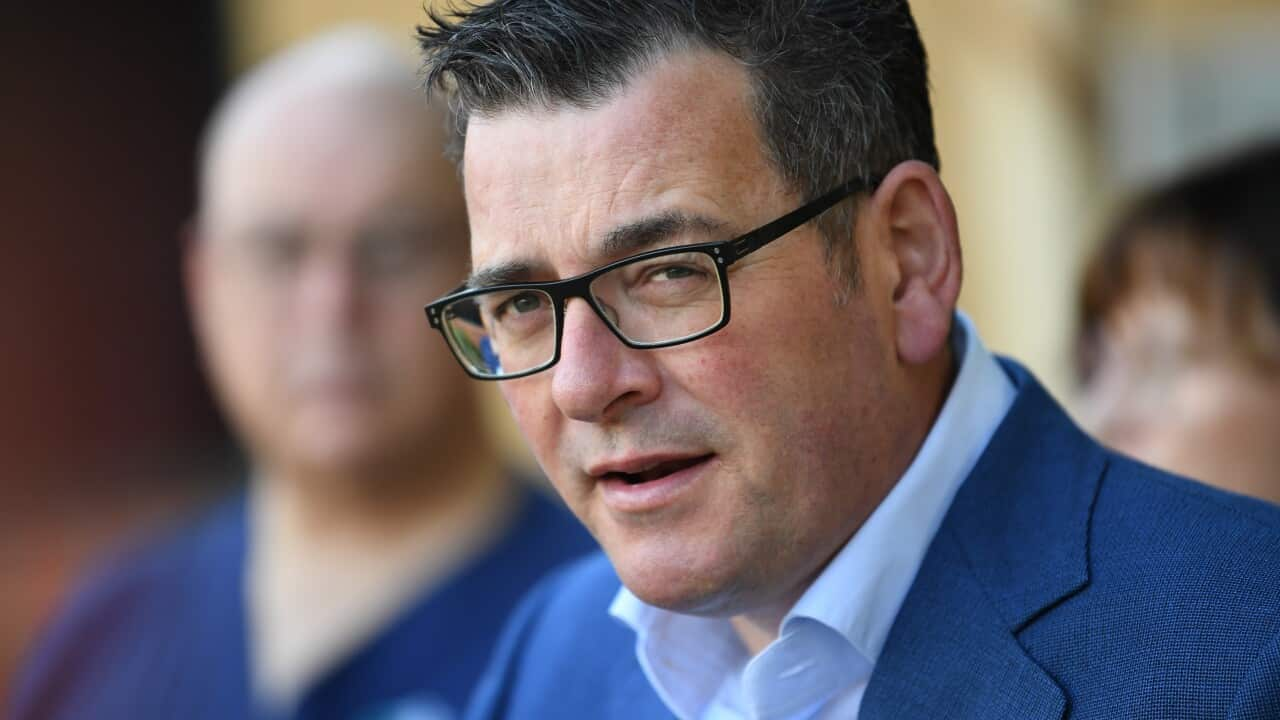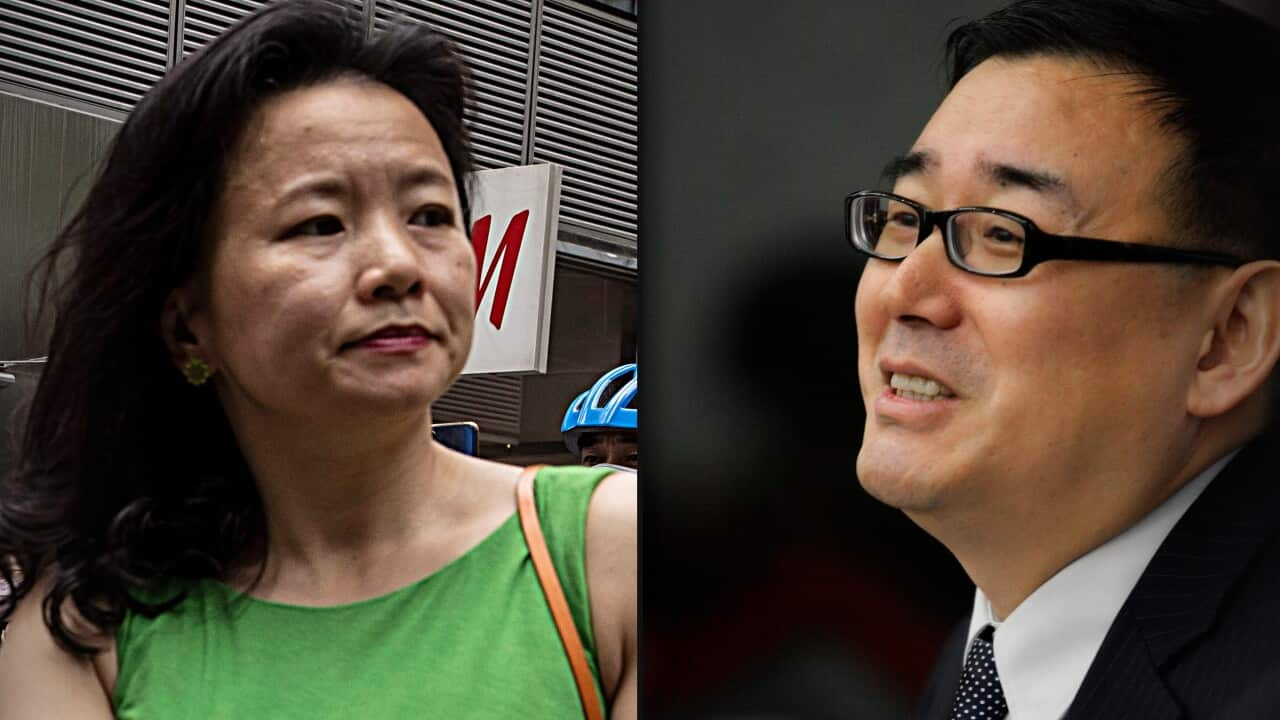Key Points
- Victorian Premier Daniel Andrews has travelled to China on a four-day trip to attract Chinese students to the state.
- But he's drawn criticism over failing to invite Australian media to accompany him on the trip.
- Advocates say they are "disturbed" by the decision, saying it is in the public interest for media to be present.
Daniel Andrews' office has outlined who the Victorian premier will meet with on the first of his four-day visit to China over which he is facing criticism for failing to invite any Australian media.
Mr Andrews arrived on Tuesday morning and will visit Beijing, Jiangsu, and Sichuan provinces, in an attempt to attract Chinese international students to Victoria.
A schedule released by his office on Tuesday afternoon showed he would meet Victoria's commissioner to Greater China, Brett Stevens; Australia's ambassador to China, Graham Fletcher; vice-president of the Chinese People’s Association for Friendship with Foreign Countries, Li Xukui; China's education minister, Huai Jinpeng; and Beijing Mayor Yin Yong.
It included no other details.
Mr Andrews' trip has drawn criticism from press freedom advocates and the federal opposition, with immigration spokesman Dan Tehan labelling it 'secretive'.

Victorian Premier Daniel Andrews visited Beijing in 2015. Source: Twitter / Daniel Andrews
"It's hard to imagine a foreign trip that could be more important for an Australian premier than to Beijing, particularly at a time when relations are so critical and so much in flux," Professor Greste said.
"A lot can happen, a lot could come out of this particular trip."
Professor Greste was imprisoned for 13 months in Egypt while employed as a journalist at Al Jazeera in 2013 after being convicted of spreading false news and aiding the Muslim Brotherhood group. He was sentenced to seven years in jail but was later deported to Australia in February 2016.
He said it's not "a very good look" that Mr Andrews is travelling without independent press.
Mr Andrews' visit will make him the first Australian leader to visit China since the amid mounting tensions between the two countries.
Victorian Deputy Premier Jacinta Allan on Tuesday defended the decision to not invite local media. She said it was "very much a business trip" and that Mr Andrews "particularly transparent" ahead of it.
Australia's media union The Media, Entertainment & Arts Alliance said it was "disturbed" by Mr Andrews' decision "not to invite media to accompany him on his visit to China".
"There is a clear public interest for journalists to report on an official, taxpayer-funded visit to another nation," president Karen Percy said.
“The presence of journalists ensures transparency and accountability, and Mr Andrews’ reported reasons for his decision not to invite media on the trip lack basis.
“Mr Andrews should revisit this decision to demonstrate that his government is not afraid of journalistic scrutiny and that it supports press freedom."
Mr Tehan said he was concerned that only China's state-run media would be reporting on the trip.
“He should articulate what the purpose is, why he’s going, what are the outcomes he’s seeking to achieve from Victoria from this secret trip that he will not take any reporters on," Mr Tehan told Sky News on Monday.
China has jailed the highest number of journalists in the world according to a 2022 report from Reporters Without Borders, with 110 currently imprisoned.
Professor Greste said he hoped Chinese-born Australian journalist Cheng Lei and author Yang Hengjun, who are among those imprisoned in China, were at the "very top of the premier's agenda".
While he did not name Ms Lei and Mr Hengjun, Mr Andrews said he won't be raising "deeply sensitive matters" with the Chinese government.
"Some things are absolutely appropriate to raise. Other things you need to be very careful [about] when you are the leader of a sub-sovereign state," he said on Sunday.

China-born Australian citizen Cheng Lei has been detained in China since August 2020. Credit: Vaughn Ridley/Sportsfile for Web Summit via Ge
The trip comes two years after the former Morrison government tore up Victoria's agreement with Beijing, which was classified as part of China's global Belt and Road infrastructure strategy.
The agreement, made in 2019, was designed to increase the participation of Chinese companies in Victoria's infrastructure program and promoted cooperation of Victorian businesses in China.
Assistant trade minister Tim Ayres is also scheduled to travel to China this week separately to discuss energy and trade at Bo'ao Forum for Asia dialogue.
With AAP.










